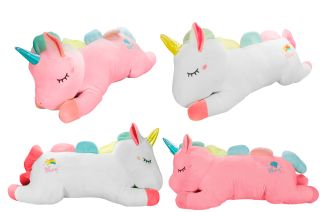Hypnosis
Habit Cough Can Resolve Through Working With Metaphors
Hypnosis can help treat habit cough.
Posted March 16, 2024 Reviewed by Ray Parker
Key points
- Habit cough should be suspected when there is no medical reason for children to cough.
- Non-medical interventions like hypnosis and suggestion therapy are the best way to treat.
- Often, there is an underlying psychological reason for the persistence of a habit cough.
By Cheryl Beighle, M.D., with Ran D. Anbar, M.D.
Habit cough is a relatively common symptom complex in children. A cough is present when the patient is awake and resolves during sleep.
The cough is often harsh, occurring every 2-3 seconds, and there are no other symptoms, such as fever or congestion. It is thought to be related to stress in the child and often starts after an upper respiratory infection (Anbar and Hall, 2024).
It can be thought of as a somatization symptom a child develops to deal with stressful life events. Effective treatments for habit cough include suggestion therapy and hypnosis (Weinberger et al., 2023).
Let's describe a 7-year-old who was instructed in the use of hypnotic imagery to treat her habit of coughing.
”Ashley” (not her real name) had been evaluated by her pediatrician and the local children's hospital, and no physical reason was found for her cough. She had been unable to attend school because of the daytime, loud, repetitive cough that had been present for six weeks.
She was referred for evaluation by an integrative pediatrician who uses hypnosis and other mind-body tools to help children process anxiety and other emotions they find challenging.
Ashley was a bright girl. Her mother was unaware of any trigger for her cough. She was a good student and liked school. She said she missed her friends at school and learning new things. She very much wanted to go back to school. Mom worked from home and reported that Ashley’s 5-year-old sister had medical problems but did not go into details.

Hypnosis Intervention
Ashley was coached to imagine and describe a place and time before the cough. She was then guided to imagine the same place in the future after the cough was no longer present.
Then, Ashley was asked to use her imagination to go to the control part of her brain, where the cough is controlled. Ashley said unicorns controlled the coughs, but they were all asleep.
She was asked to wake one up since they weren’t doing their job. She replied that the one she woke up said he wasn’t in charge.
When she was asked to find the one in charge, the first unicorn pointed out a sleeping unicorn. Ashley went to wake up the second unicorn. When it woke up, it told her it was sleeping because it couldn’t stand all the screaming. It added that if the screaming went down, it could be awake.
When Ashley opened her eyes, she said, “I have a lot of stress.”
Mom related afterward that Ashley’s sister had behavior problems and would run through the house screaming, hitting, and throwing things. The sisters shared a room so Ashley could go nowhere to “escape.” (None of this information had been brought up when Ashley’s mother first described her history.)
Mom promised to make a safe place for Ashley. Also, it was suggested that Ashely write about her feelings in a journal. The cough resolved that day, and the feelings journal filled up over the following weeks.
Mom started therapy with a local therapist for both girls.
Takeaway
Prior to the use of hypnosis, Ashley may not have been fully aware of how disruptive her sister’s behavior was for her. In addition, she may not have felt she had the power or ability to tell her family directly about her feelings. She likely developed the cough as an expression of her distress.
Ashley appears to have used the sleeping unicorns as a metaphor for her own powerlessness. She then used the unicorns’ voices to express the changes she needed in her life to resolve her cough.
This case demonstrates the importance of allowing a child to take the lead in facilitating her healing and the imaginative ingenuity young children can demonstrate as a way of effectively expressing themselves.
Cheryl Beighle, M.D., is an integrative pediatrician who uses hypnosis and other mind-body tools to help children process anxiety and other emotions they find challenging.
References
Anbar RD, Hall HR. (2004). Childhood habit cough treated with self-hypnosis. J Pediatr. 144:213-217.
Weinberger M, Buettner D, Anbar RD. (2023). A review, update, and commentary for the cough without a cause: Facts and factoids of the habit cough. J Clin Med. 12(5), 1970.




